84 F. average high on July 13.
80 F. high on July 13, 2013.
July 13 in Minnesota Weather History. Source: Twin Cities NWS:
2003: At least eleven tornadoes hit Minnesota. Damage was relatively light. Baseball-sized hail is reported at Indus in Koochiching County.
1936: The hottest day ever in the Twin Cities with 108 degrees at the downtown Minneapolis office. 71 people died due to the extreme heat in one day in the Twin Cities.
1916: Cloudburst at New Ulm dumps over seven inches of rain in seven hours.
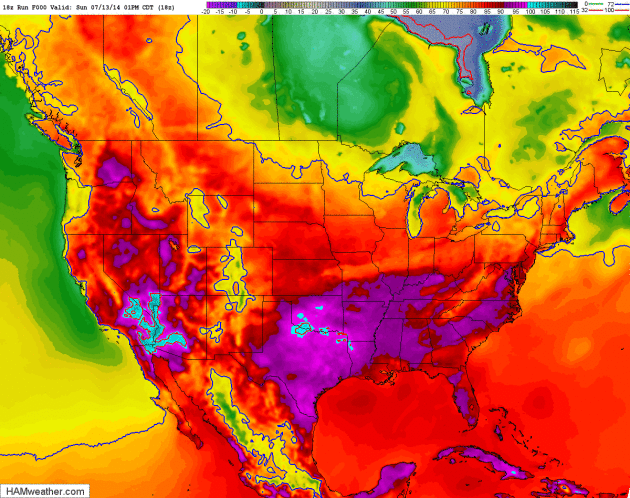
An Early October
Yes, we got our weather boasting rights back. There are a few Minnesota townships where I could be jailed for mumbling 'wind chill' under my breath in mid-July. That's why I'm in my weather bunker, wondering out loud exactly when our weather went off the rails.
The terminology we've been using is all wrong. Global warming suggests everyone warms up, simultaneously. Climate change? Our climate has always changed, although this time we're the ones stepping on the accelerator.
Climate volatility is a better descriptor. From a record warm 2012 to last winter's Polar Vortex. From "flash drought" last summer to June, 2014, the wettest month in Minnesota history. That's what we're seeing in the data and on the maps.
Exhibit A: today, perfectly average for early October. A few instability showers pop up this afternoon; highs stuck in the low to mid 60s - probably the coolest July 14 on record for MSP. Meanwhile highs will soar to 90F near the Arctic Circle, topping 100F over British Columbia.
Extremes right out of some fictional, hard-to-believe Hollywood blockbuster.
Tuesday's big game looks brisk but dry (I still expect a few snarky comments about the chill from TV announcers). Summer heat returns next week as highs approach 90F.
Strap yourself in!
Coolest High Temperatures on Record in the Twin Cities:
Today: 68 F. (1884)
Tuesday: 63 F. (1962)
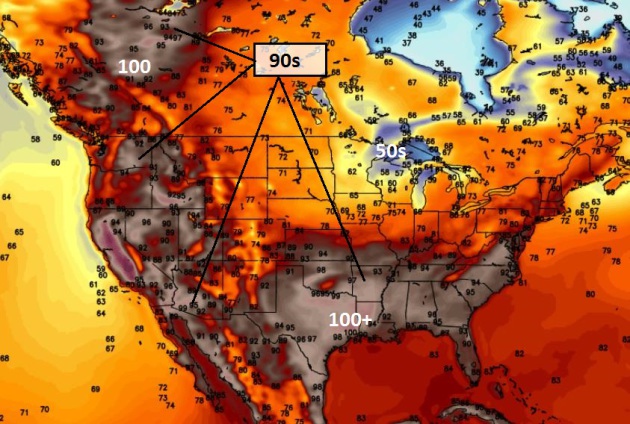

- 1990 - Wrigley Field (Chicago)
- 1999 - Fenway Park (Boston)
- 2002 - Miller Park (Milwaukee)
- 2007 - AT&T Park (San Francisco)
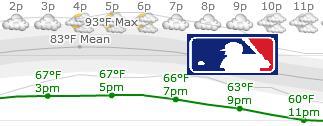
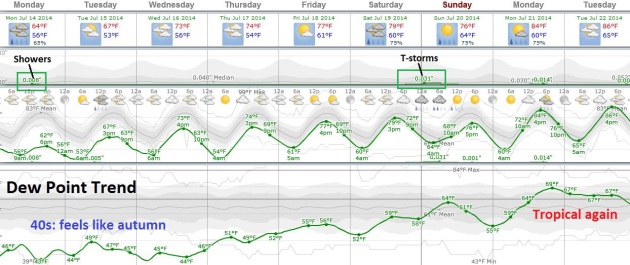
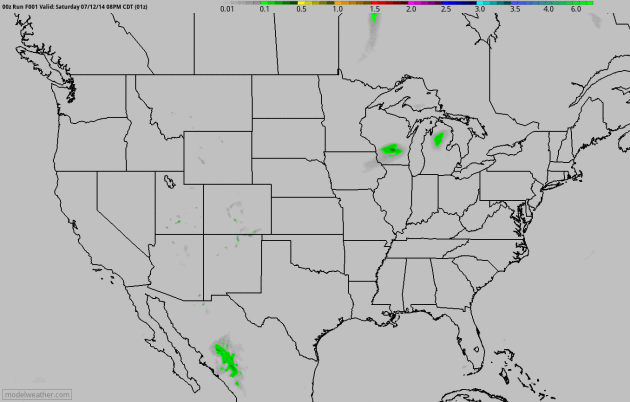
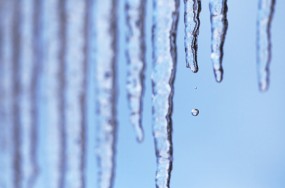

Car Insurance Companies Want to Track Your Every Move - And You're Going to Let Them.
If you want the lowest possible rate you give up a little more of your
privacy (and soul) right? Here's the intro to a story at Quartz: "The
proposition is simple: Install a device in your car and allow your
insurance company to monitor your driving—how fast you drive, how hard
you brake, how sharply you corner, and so on. In exchange, it will give
you a discount on your premiums. That
might sound alarming, but it shouldn’t
be surprising. Considering internet users already happily trade data on
every online move they make in exchange for free services, the only
surprise is tracking-based insurance isn’t already more widespread..."
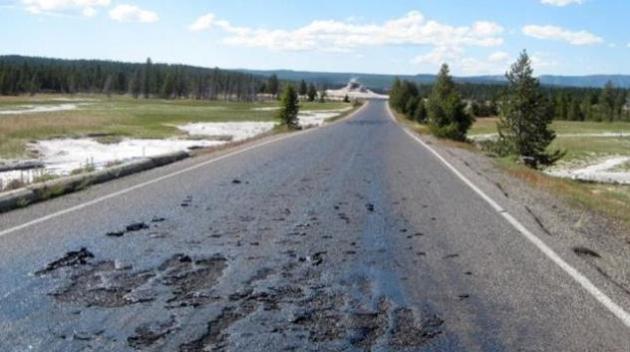
It's So Hot in Yellowstone That a Road Literally Melted. While we set records for early October-like chill here in Minnesota, Wyoming is sizzling. Here's an excerpt from Gizmodo: "...Yellowstone National Park is riddled with constantly changing geothermal hot spots—it's
part of the reason for the park's famous geysers. But this past
Thursday, the area around one section of road got so hot that asphalt
literally started melting. The soupy mess of a road forced park
officials to close off access to some of the park's biggest tourist
attractions. What's more, visitors have been warned against even
attempting to hike in the area—the spiking temperatures have created
hidden pockets of boiling hot water..."

World Cup: Viewers Upset after TV Station Interrupts Game to Cover Tornado Warning. Some days you just can't win. Details from The Hollywood Reporter: "Some
World Cup fans in areas of New York and Pennsylvania were irate at a
local TV station Sunday for cutting into the last few minutes of
Sunday's World Cup final to cover a tornado warning..."

TODAY: Coolest July 14 since 1871. Showery, windy and raw. Winds: NW 15-25+ High: 63
MONDAY NIGHT: Furnace-worthy. Unusually cool. Low: 53 (40s well outside the metro area late)
TUESDAY: Free A/C for MLB All-Stars. Brisk under a partly sunny sky. High: 69
WEDNESDAY: Bright sun, light winds. Dew point: 43. Wake-up: 53. High: 73
THURSDAY: Sunny and milder. No complaints. Wake-up: 56. High: 76
FRIDAY: Sunny, feels like July again. Wake-up: 60. High: 81
SATURDAY: Sticky sun, T-storms at night. Wake-up: 64. High: 82
SUNDAY: Unstable, stray T-shower. Dew point: 63. Wake-up: 65. High: 79
Climate Stories....
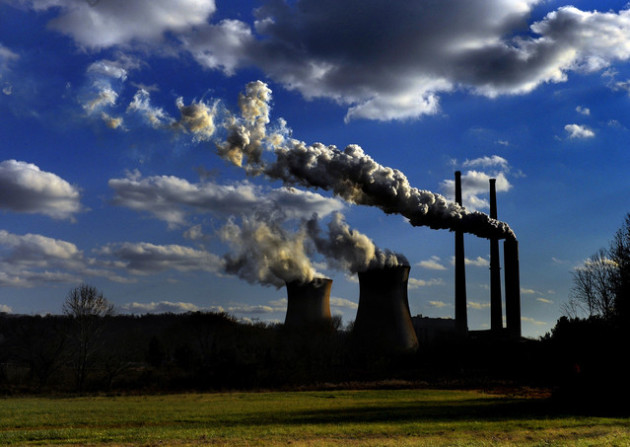
Climate Change for Dummies. Here's an excerpt of an Op-Ed at the Concord Monitor: "...I
distinctly remember my professor Richard Bopp, researcher at Goddard
Institute for Space Studies, telling us that the only thing he knew was
that you could not overload such a delicately balanced system like our
atmosphere and not have something change. The idea that everything in
the world would gradually and evenly rise in temperature was unlikely,
but he and his colleagues could not offer an alternative at that time.
Well, 25 years later, we have a better idea. Thanks to the
Intergovernmental Panel on Climate Change, a voluntary 2,000-member
group of scientists committed to understanding climate change, we can
verify that we are experiencing more severe weather and increases of
ocean levels, glacial melting and average temperature..."
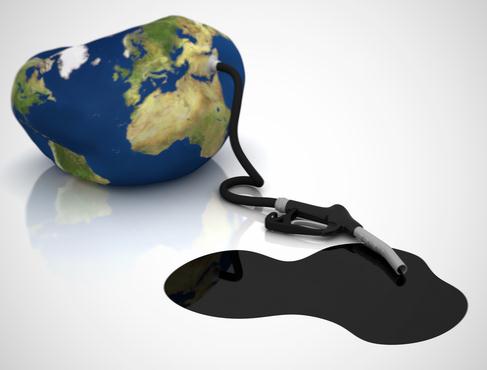
Orwellian Newspeak and the Oil Industry's Fake Abundance Story. Here's a clip from a post at Resource Insights that caught my eye, regarding the (perception) that we can frack our way to indefinite oil and gas supplies: "...Growth
in world oil production (defined as crude plus lease condensate) in the
eight years from the end of 1997 to the end of 2005 was 10.1 percent according to the U.S. Energy Information Administration (EIA).
During the eight-year period from the end of 2005 (an important
inflection point) through 2013 that growth was 3.0 percent. The dramatic
slowdown in the rate of growth occurred despite the wide deployment of
new technology (such as high-volume slickwater hydraulic fracturing),
record average daily prices (based on the world benchmark Brent Crude)
and record oil industry spending on exploration and development. All of
these things would have dramatically increased production if we weren't
facing limits on what is cost-effective to extract..." (Image: Clean Technica).

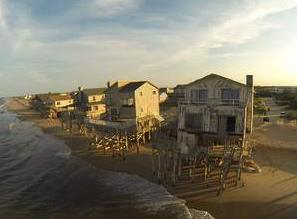
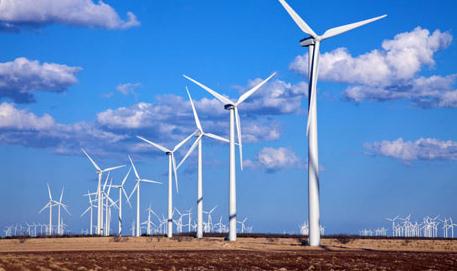
No comments:
Post a Comment